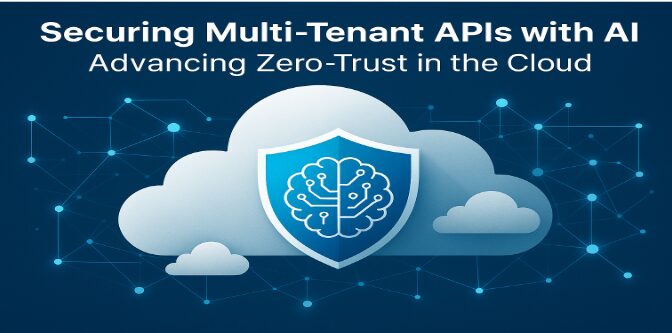Securing Multi-Tenant APIs with AI: Advancing Zero-Trust in the Cloud

In today’s hyperconnected digital ecosystem, the cloud is the new frontier—and APIs are its nerve center. But with growing reliance on multi-tenant architectures and complex microservices, traditional security frameworks are buckling under the weight of dynamic, high-volume requests. Bridging that gap is Balaji Chode, a cloud solutions architect whose AI-driven authorization system is setting a new standard for zero-trust API security at scale.
Published across multiple technical forums and applied within Microsoft Azure environments, Chode’s solution introduces risk-adaptive authorization, where API access isn’t just granted based on static roles or pre-issued tokens—but dynamically determined based on behavior, context, and AI-backed policies.
Adaptive Security for the Multi-Tenant Era
Chode’s architecture embraces zero-trust at its core. Each API request is evaluated in real time using a context-aware decision engine, trained on historical usage patterns and policy feedback loops. This allows the system to detect anomalies—such as location shifts, token replay attempts, or abnormal call sequences—and take appropriate action ranging from alerting to blocking access altogether.
Built natively for Microsoft Azure, the system integrates with Azure AD, OAuth2, and Kubernetes-managed services. It supports policy-as-code enforcement, allowing fine-grained rules to adapt dynamically as risks evolve—an essential shift for SaaS platforms and financial cloud applications operating under SOC 2, HIPAA, or PCI-DSS frameworks.
AI Meets Authorization
What distinguishes this platform is its fusion of AI with real-time authorization pipelines. Chode’s design incorporates anomaly detection models using telemetry from API gateways, load balancers, and service meshes. These models help flag potential abuse cases such as credential stuffing, lateral movement, or privilege escalation—long before they can trigger downstream damage.
The architecture also features tenant-aware context segmentation, ensuring that each customer space within a shared cloud environment has its own logic, trust boundaries, and adaptive policies. This enables secure, scalable multi-tenancy for cloud-native applications.
Designed for Real-World Deployment
Chode’s framework has been piloted across enterprise environments where traditional IAM and RBAC models fall short. Teams can plug the system into their existing CI/CD pipelines or infrastructure-as-code templates, instantly enabling risk-adaptive API protection without overhauling core logic. The system can run in hybrid environments—on Azure, AWS, or on-prem—offering the flexibility modern DevSecOps teams demand.
Looking Ahead
As cloud-native platforms continue to scale, securing the API layer will only grow in importance. Chode’s work proves that authorization doesn’t have to be static. By treating every request as untrusted until proven otherwise—and using AI to contextualize and adapt—his system offers a real blueprint for what zero-trust security should look like in practice.
Teams can plug the system into their existing CI/CD pipelines or infrastructure-as-code templates, instantly enabling risk-adaptive API protection without overhauling core logic. The system can run in hybrid environments—on Azure, AWS, or on-prem—offering the flexibility modern DevSecOps teams demand.
Editor’s Note:
Balaji Chode is a seasoned AI and cloud solutions architect with expertise in zero-trust infrastructure, telecom automation, and predictive analytics. He has published across IEEE, government technology outlets, and patent portfolios in public safety, health AI, and secure multi-tenant computing.





